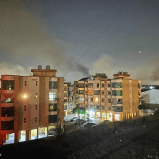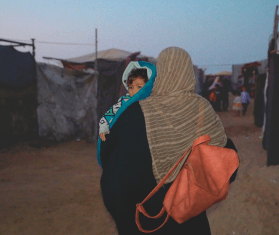NEW YORK/BEIRUT, September 24, 2024 — Following airstrikes and widescale Israeli bombings of multiple areas in Lebanon this week, Doctors Without Borders/Médecins Sans Frontières (MSF) is stepping up its response to escalating medical and humanitarian needs by delivering primary health care and essential relief items to people who’ve been displaced by the conflict.
According to the Lebanese Ministry of Health, 558 people have been killed and 1,835 have been injured. Thousands more have been forced to flee their homes to seek refuge elsewhere in the country—often quickly and without basic necessities.
We speak out. Get updates.
For example, since yesterday, some of MSF’s staff in south Lebanon, Beirut, and other parts of the country have been forced to leave their homes, with people fleeing and spending hours in traffic in search of safety. In south Lebanon and Baalbek-Hermel—areas that continue to experience heavy aerial strikes—MSF staff reported bombardments in close proximity to their homes. Many staff there were still sheltering in their homes while Israeli warplanes continued to fly overhead and throughout the night.

What's happening in Lebanon?
Learn moreHow we're helping in Lebanon
MSF is distributing non-food items like mattresses and hygiene kits to collective shelters across the country. MSF mobile medical units are providing primary and mental health care to shelters for those in need. In addition, teams are running mental health helplines, offering psychological support to displaced and affected individuals during this time of distress.
Following the pager attacks last week, MSF immediately reached out to health actors, including hospitals, to provide support and donate supplies.
MSF will continue to coordinate closely with partners and hospital networks, offering support where possible as the situation develops.




